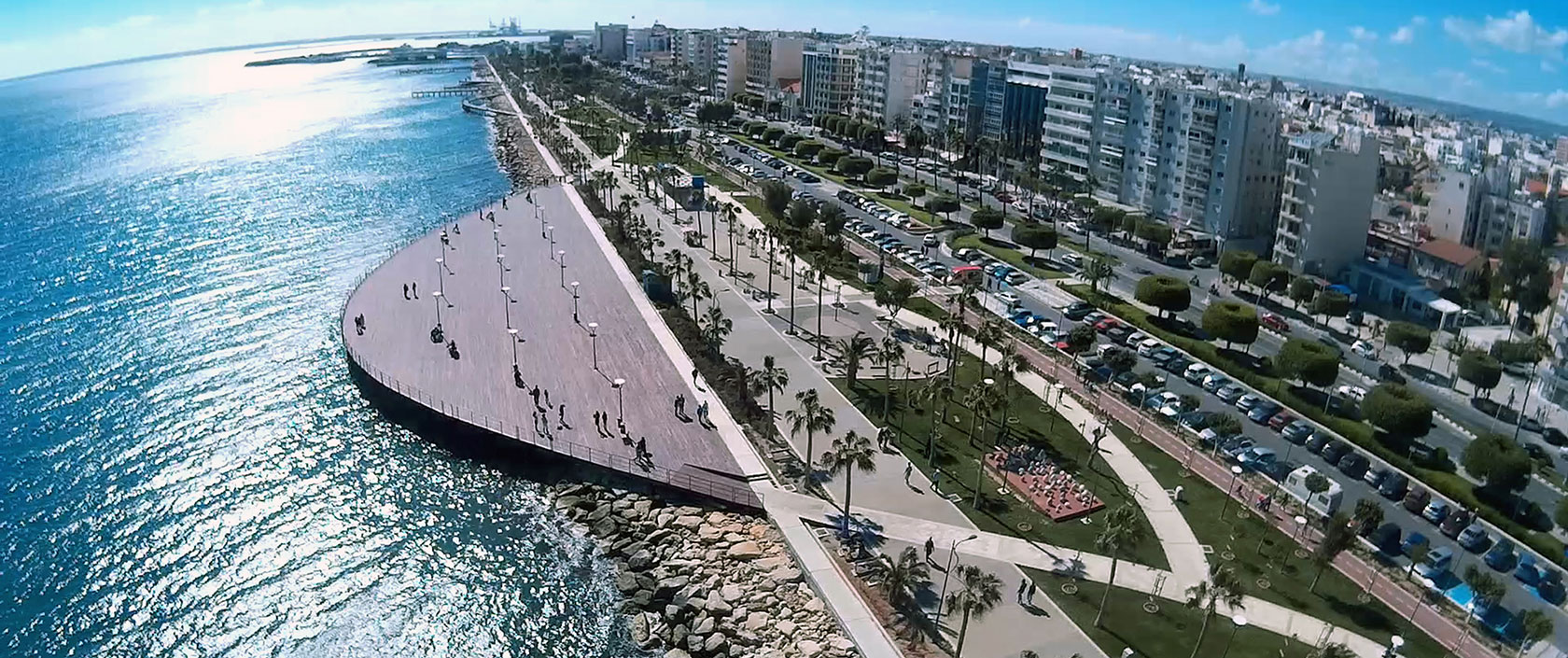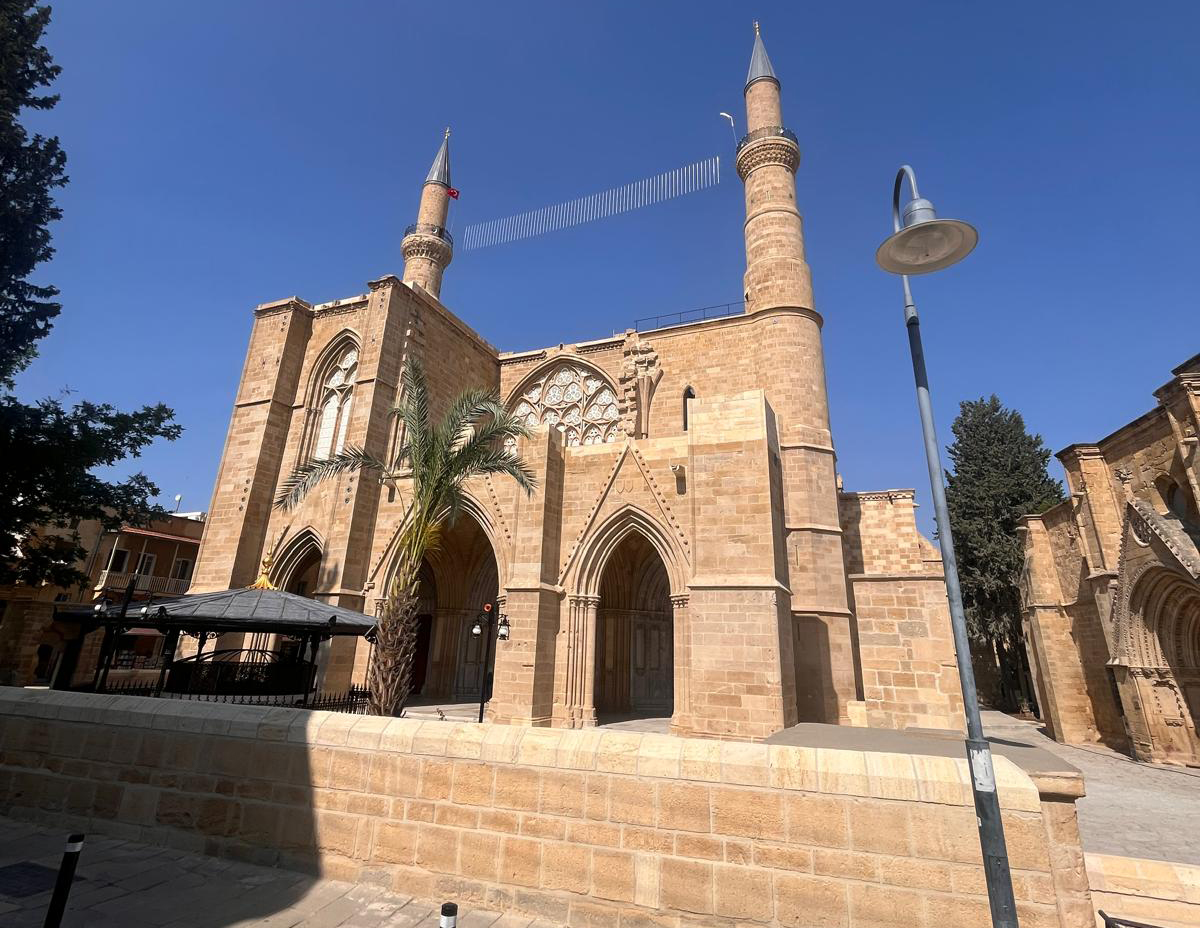It’s a lot like sex; stand-up comics making edgy, potentially tasteless or offensive jokes can only work with the support of the audience
What’s behind the recent boom in stand-up comedy, a cultural sea change that’s propelled the number of local stand-ups to around three dozen from practically none? Constantinos Psillides has a simple one-word answer:
“Netflix!”
45-year-old Psillides pre-dates the boom, having been performing since the ‘practically none’ days. At the time – 10 years ago, say – there was only him, Louis Patsalides (the father of stand-up in Cyprus) and Costas Pringipas, with the other two being more active on TV than in live shows.
But it wasn’t just the numbers; there was also no culture of stand-up. At one of his very first shows, recalls Psillides, “a guy got up and was like: ‘Hey kid, are you gonna sing something, or are you just gonna babble all night?’”.
The concept of someone going onstage just to riff and tell jokes was alien here – at least till a certain streaming service started showing comedy specials. “Basically, Netflix trained people to know what stand-up is.”
Netflix was the catalyst, in the sense of connecting with a mass audience. But it only magnified what was already there (just more niche). The mainstreaming of comedy is above all generational, driven by Millennials; age-wise, local comics range from mid-40s down to early 20s. (The youngest cohorts also include some women, though the scene is predominantly male.) It’s a global phenomenon that’s been building for years. Cyprus – as usual – is late to the party, if anything.
Before Netflix, there was YouTube. Thus, for instance, 34-year-old George Elisseos recalls devouring comedy clips from about 2009 (his gateway was the late great George Carlin). He then took part in the “meme boom” of the mid-10s – “I created memes and was sending them to various Facebook pages and Instagram pages, and some of them were picked up a little bit” – then did open-mic sets as an expat in Warsaw, long before performing in Cyprus.

That’s also why, despite being entirely Cypriot, Elisseos (like all the comics featured in this article) also tells jokes in English, and in fact prefers it. “That’s the language where I think more clearly, in terms of comedy writing… Because I’ve consumed so many hundreds of hours of comedy, the techniques come more naturally to me in English.”
After Netflix – which arrived in 2016 – there was Giorgos Kyriacou. Not just an actor but one of the best-known young actors in Cyprus, classically-trained Kyriacou (now 37) decided to add stand-up to his repertoire, craving “a more direct connection with the audience” and wanting to talk about issues, the edgier the better.
He did all that, earning a reputation for challenging audiences – but he also brought his theatre contacts and professional showbiz savvy to the party. He taught workshops, and led his students on islandwide comedy tours. He brought comedians from abroad. He was also the driving force behind the ‘Standar Kkometi Festival’ [sic], a next-level, two-day event that packed the Rialto in Limassol and opened the door to lots of new names.
Take Vasilis Panayiotou, for instance, who performed at the first ‘Standar Kkometi’ in 2023. An anxious-looking man on the cusp of 40, with horn-rimmed specs and a rather metallic voice, he had “nothing to do with the arts,” he says. “My singing voice is terrible, my acting non-existent.”

Panayiotou works a mundane day-job in the stockroom of a store in Nicosia, and previously drove a truck for a company selling plastic pipes. Yet he got up onstage at the Rialto, for the first time, “and I discovered – my calling, I would say”.
It’s weird, he admits, “because usually people find their calling early. And at some point you say, ‘Y’know, maybe I don’t have a calling in life. Maybe I just do my job, everyday schmuck. I go to work, I go home’…
“And then you turn – I think I was 37 when I started doing stand-up. And you’re like, ‘OK, this is my calling. This is what I do to fill my soul’”.
People talk of a comedy ‘scene’, like it’s all one thing – but in fact there are layers, like an onion. The inner layer is the handful of big names (Kyriacou, Psillides, Zacharias Zannettou, a few others) who can fill theatres. The outermost layer is the mishmash of folks who do the occasional open-mic, padding out five minutes with funny stories – everyone’s got a few stories – and jokes that their friends find amusing.
In between are those like 43-year-old Alexis Poullitas (a real-estate agent by profession), or Elisseos, or Panayiotou, who have day jobs and don’t really plan to turn pro, but also take their comedy seriously.
“I’m an amateur,” says Panayiotou, “but I’ve never put in so much homework in my life! I’ll stay up writing till two or three in the morning, then wake up at six and go to work”.
There are outliers too, like Peter Kypri a.k.a. Cypriot Smurf – who’s surely the most successful English-language, Cyprus-based comedian yet not really part of the scene, working more with diaspora audiences. And of course you have online comics, and TikTok comics – but they don’t count, sorry TikTok comics.

“Anyone who goes in front of a live audience, with a mike, and tries to make them laugh,” says Psillides, laying down the definition of ‘stand-up’ – and the obvious criterion is danger, risk, call it what you like. Not the risk of a few salty comments, or not many Likes on your video – but the very real risk of ‘bombing’ as comedians call it, telling a joke and being met with crickets, or worse.
It happens to everyone. Psillides bombed on his second-ever show, “which was very fortunate for me” since he learned a lot. Poullitas agrees – then, without meaning to, shows me the risk in real time. You might think failure’s not so bad, he muses, after all it’s just a five-minute set – “but five minutes of bombing is a long time. Just ask the children in Gaza!”.
For a moment, I’m startled, wondering how to react. Did he really go there? He went there! But in fact that’s precisely the point – and the reason why the rise of stand-up isn’t just a fad but something of a social revolution, especially in a place like Cyprus.
After all, we’ve always had comedy. For years, though, the subject of comedy was invariably village life (safely in the past), or quirky, candid-camera ‘Cypriots do the darndest things’ jokes, or else affectionate satire of politicians and public figures.
The spectacle of a guy (or gal) getting up onstage to talk about their life – including their sex life – is new, and unusual in a place where, for years, everyone worried about what other people might think. The spectacle of that same comic making edgy, potentially tasteless or offensive jokes is even more new – and can only work with the support of the audience.
“Stand-up comedy is a lot like kinky sex,” as Poullitas puts it. “In the sense that you need to get consent from your partner.
“Look, this is what we’re doing. You come here, we make fun of things, and we – together as a unit, ‘us’ the comedians and ‘you’ the audience – we process things through humour… We’re not trying to insult anyone. We’re super-grateful that anyone got off their ass and came down to any show we ever did.”

Poullitas – who spent years as a musician before the job in real estate – is actually a big audience comic, the kind of bearlike extrovert who ends our interview by persuading me and a passing waitress (we meet at Nomad in Nicosia) to join him in a little video for social media. His jokes are uncensored, but he’s not out to offend. He’ll make jokes about Russians when performing in Limassol – but they’re feelgood, all-in-this-together jokes. “In Cyprus, we’re very hospitable people, and if you’re a Russian we will help you… Unless you’re a dude, in that case you’re on your own. Hey, rules are rules!”
Giorgos Kyriacou, on the other hand, is all about pushing the envelope. “I talk about everything. I have no red lines. Whatever comes to mind I’ve talked about – from incest to pedophilia to religion, to everyday mundane things in life.”
One of his jokes, about Greek Cypriots being the only Christians who say ‘inshallah’ and ‘mashallah’, caused a ruckus at a show in Kakopetria, where an audience member rather menacingly warned him to “change the subject” – and of course no-one in the crowd stood up for him, he notes sourly, Cyprus audiences being still too timid (and reluctant to laugh out loud) when it comes to stand-up.

Then again, it’s not just Kakopetria. I talk to Kyriacou on a call from New York, where he’s playing comedy clubs (“I had referrals before I came here, from my travels in Europe”) and building his career. New York, and America in general, is the cradle of stand-up, the inspiration for most local comics – yet he freely admits that some of his cracks would be too controversial in the US.
Take, for instance, a playful bit of banter with an “Asian-looking guy” during a show in Athens. Is it racist to call you that? wonders Kyriacou. Probably not, right? After all, “you know who you are. You have eyes… I can barely see them, but…” The audience (and the guy in question) laps it up – but making a joke about race, and a person’s appearance? That’s the kind of thing that gets you cancelled in the Big Apple.
There it is again, that constant push-and-pull between comedian and audience – a tense, macho aspect, comedy as combat. Yet it’s also true that, at least in Cyprus where the scene is still in its infancy, stand-ups are incredibly supportive of each other.
By all accounts, there’s a real camaraderie. A seven-person comedy collective called The Underdogs (Elisseos and Panayiotou are both members) acts as both troupe and support group – but the big names are also very encouraging. “Like, when I began, Giorgos Kyriacou was very gracious with his compliments,” recalls Panayiotou, the anxious first-timer. “It helps with your confidence, you know?”
Actually, even Kyriacou may be mellowing slightly – looking more to the international scene (which is why all these guys perform in English in the first place) and hoping “to write global jokes about Cyprus”. He also has ambitious plans for a comedy club, possibly in Limassol but attracting talent from all over.
Things are definitely happening. Celebrity comics (Jimmy Carr, Anthony Jeselnik) have begun to arrive, giving sold-out shows. The local audience, bolstered by Netflix and experience, is becoming more sophisticated – and meanwhile local comedians come in all shapes and sizes, doing all kinds of jokes.
“I’ve seen one-liner comics,” says Psillides. “I’ve seen deadpan comics. I’ve seen more physical comics. I’ve seen people working 100 per cent clean.
“Storytelling is the most usual form: set-up, story, punchline.” He himself, however, has become more surreal in his style these days, dealing in zany scenarios: “Like, I have a joke now about a woman marrying a shark, who has a mid-life crisis”. Are you gonna stand there babbling about sharks all night, kid, or are you gonna sing?







Click here to change your cookie preferences